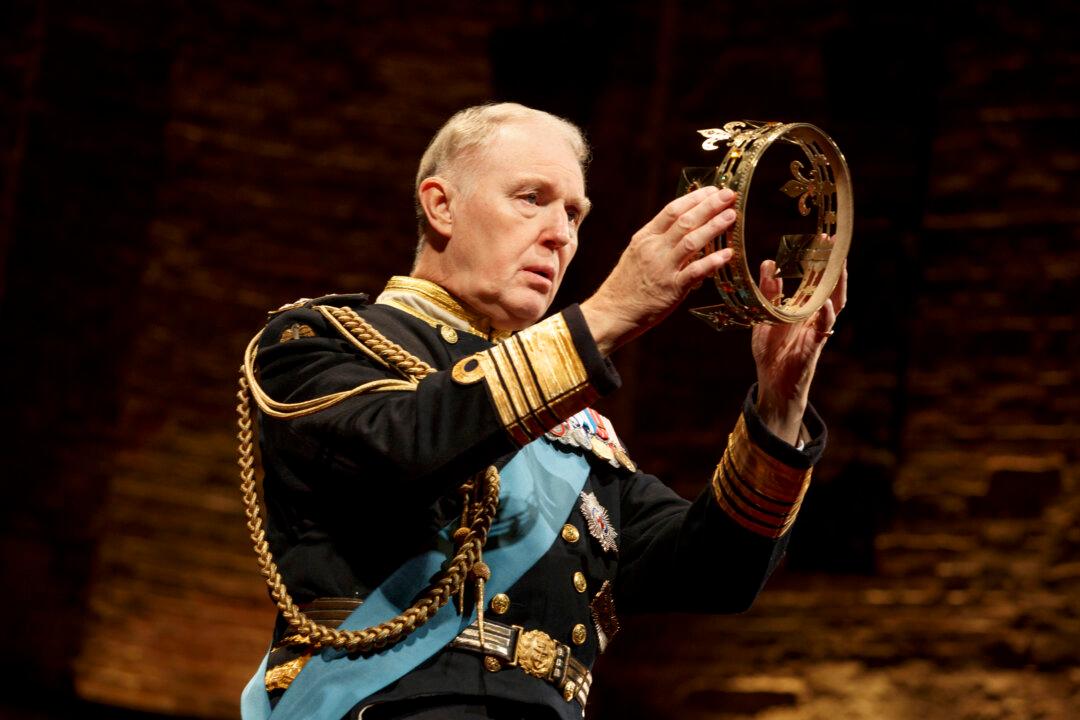NEW YORK—Politics has always, it seems, been a form of theatrical entertainment, whether looking at the current race for the presidential nomination or to the past and any of Shakespeare’s historical plays. One would be hard-pressed to find a more brilliant example now than Mike Bartlett’s “King Charles III.” Shakespearean in tone and billed as “a future history play,” the work illustrates the line between one’s personal wishes and that of the greater good.
In the not-too-distant future, the Queen of England has died after a reign of 70 years. Her son, Charles (Tim Pigott-Smith), ascends to the throne, and like any new ruler, Charles is eager to put his own stamp on the office.

What might happen if Prince Charles became king? Tim Pigott-Smith takes the title role in "King Charles III" in just such a scenario. Joan Marcus





